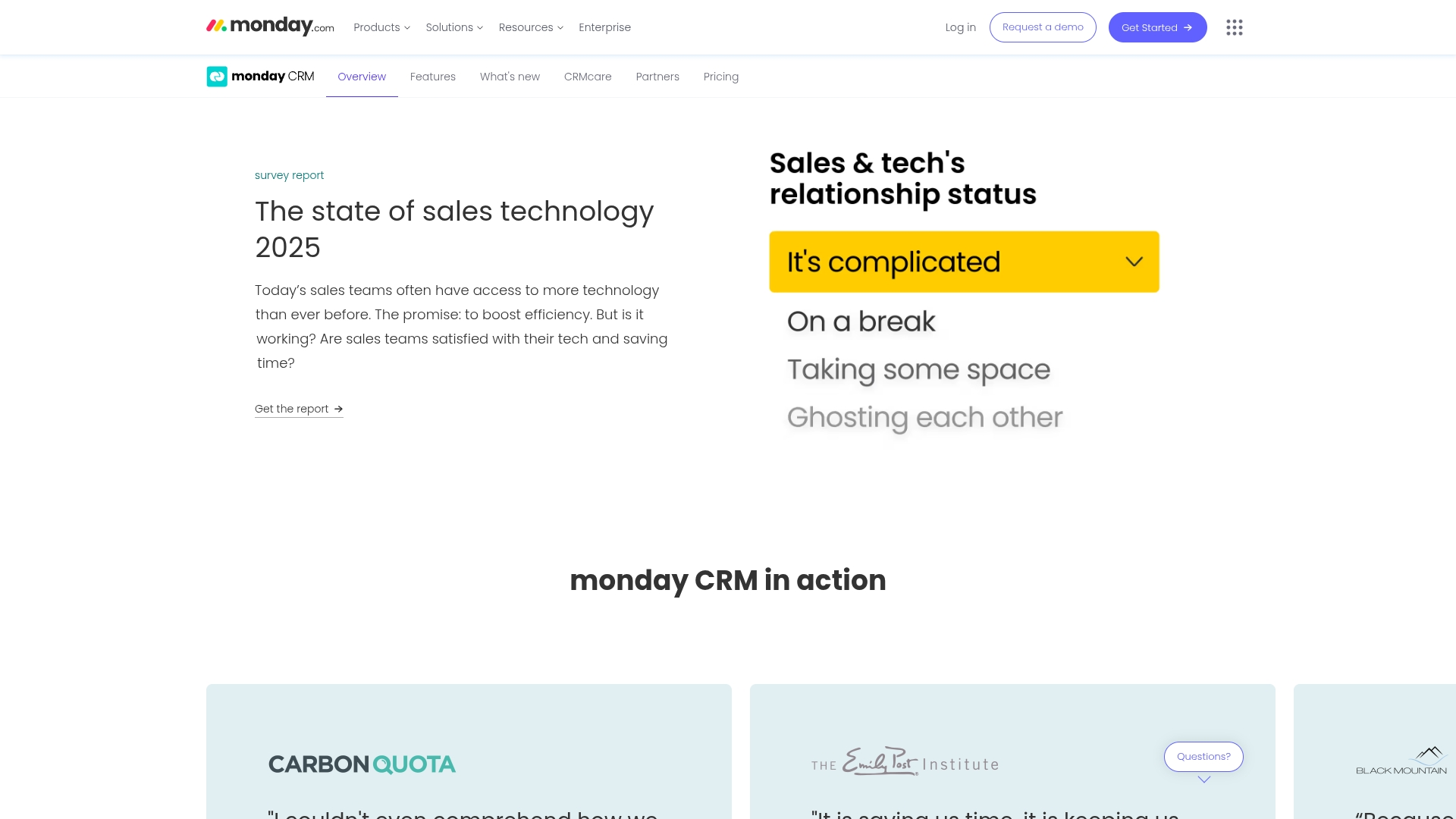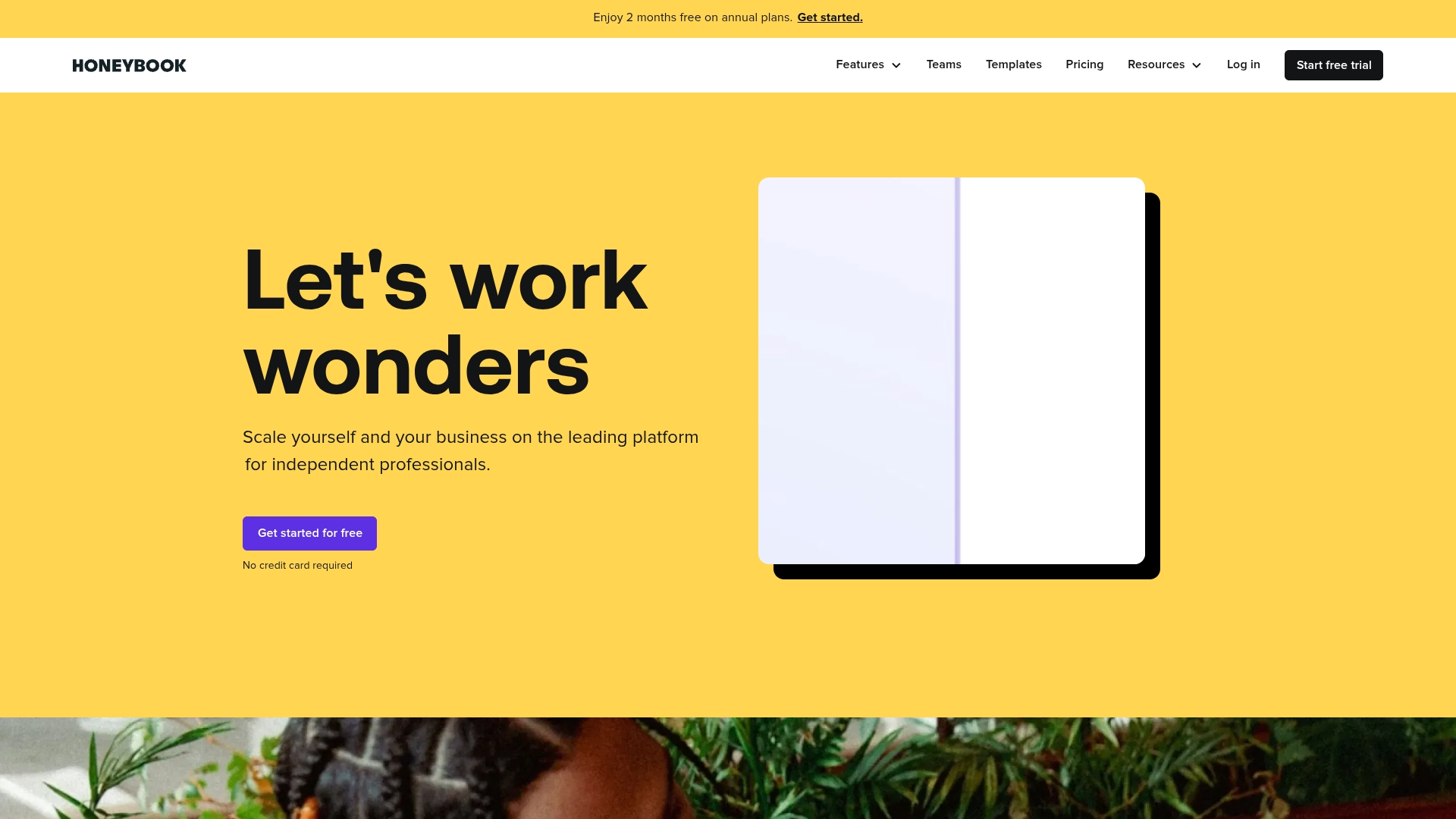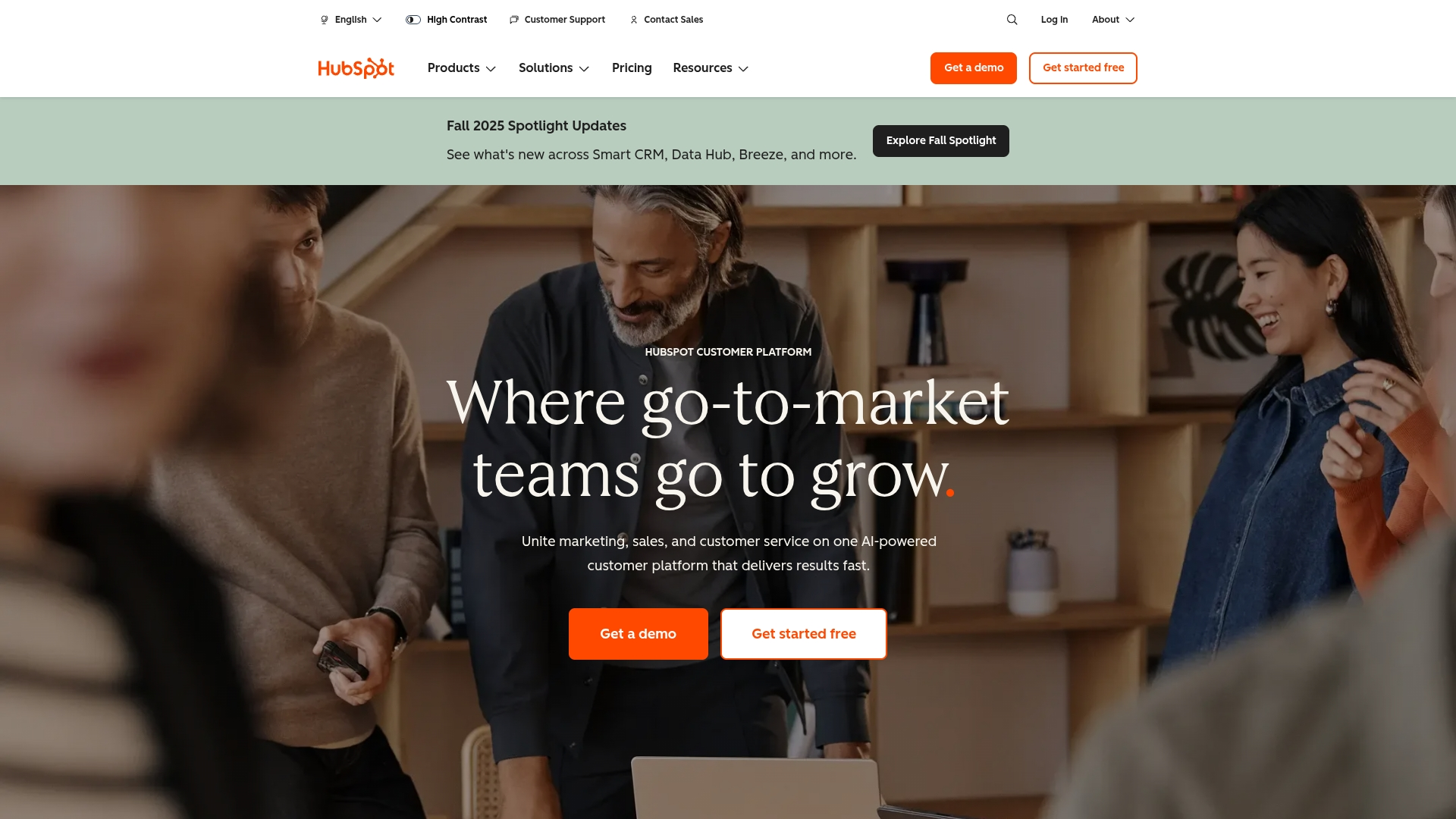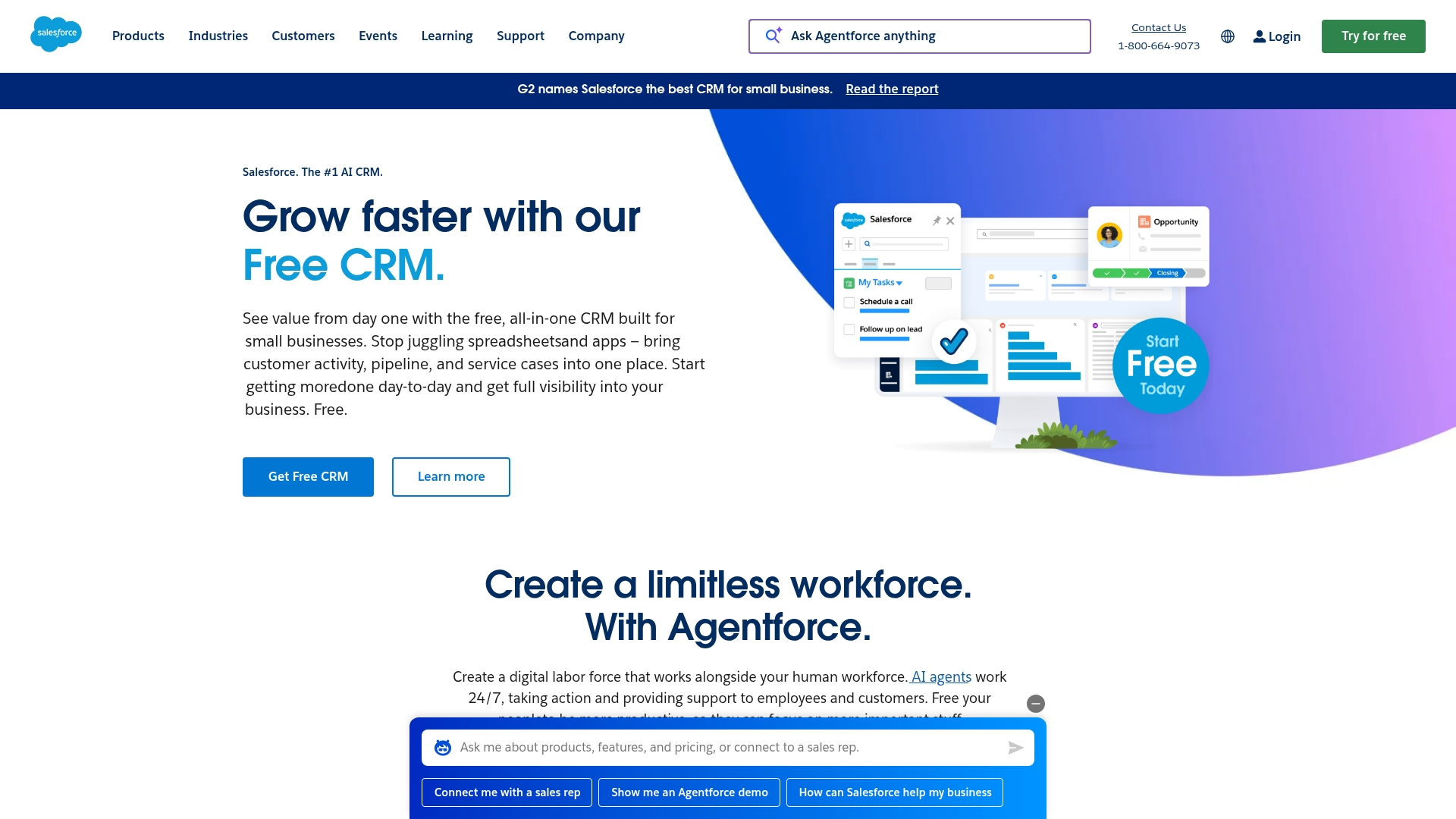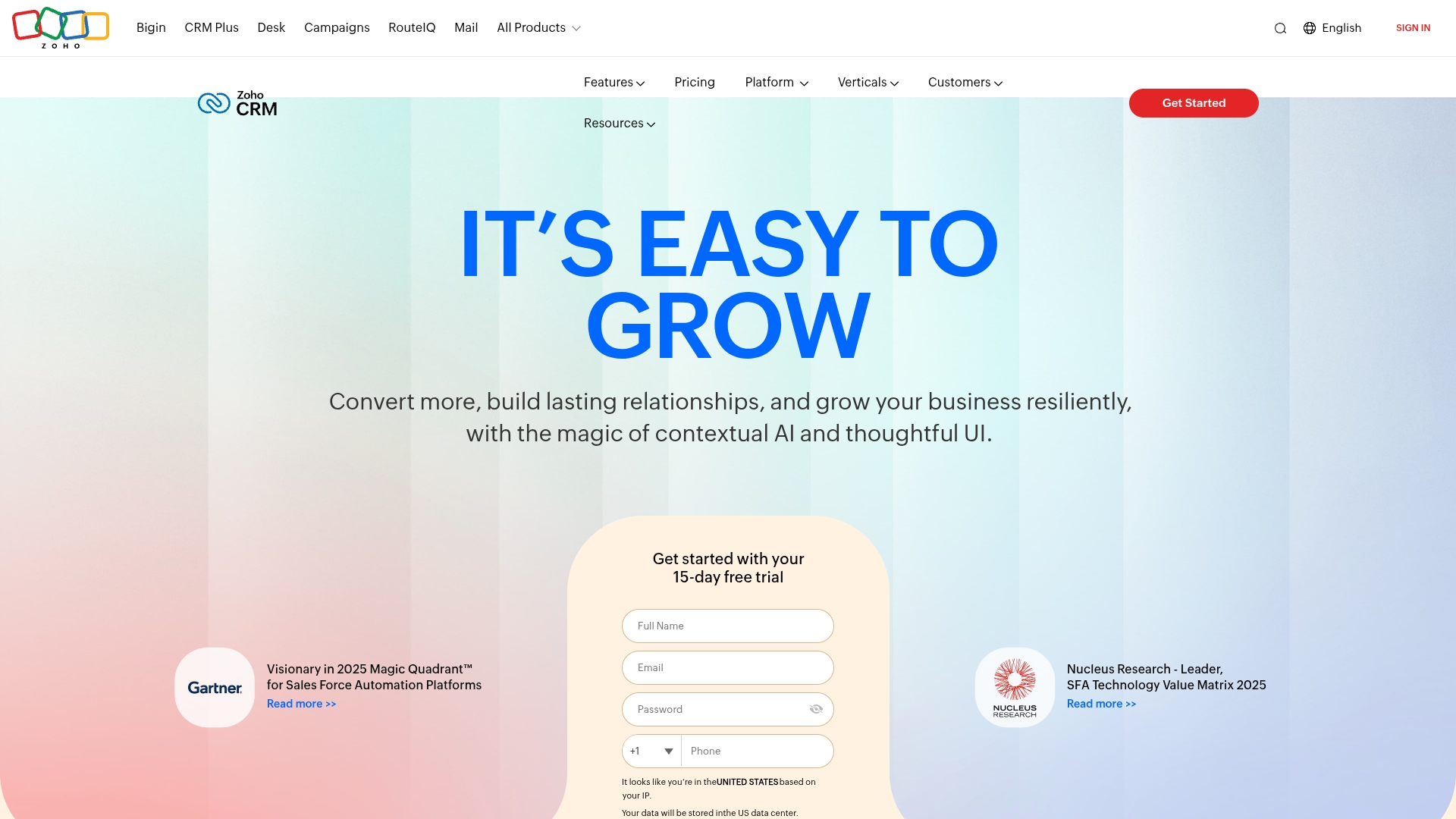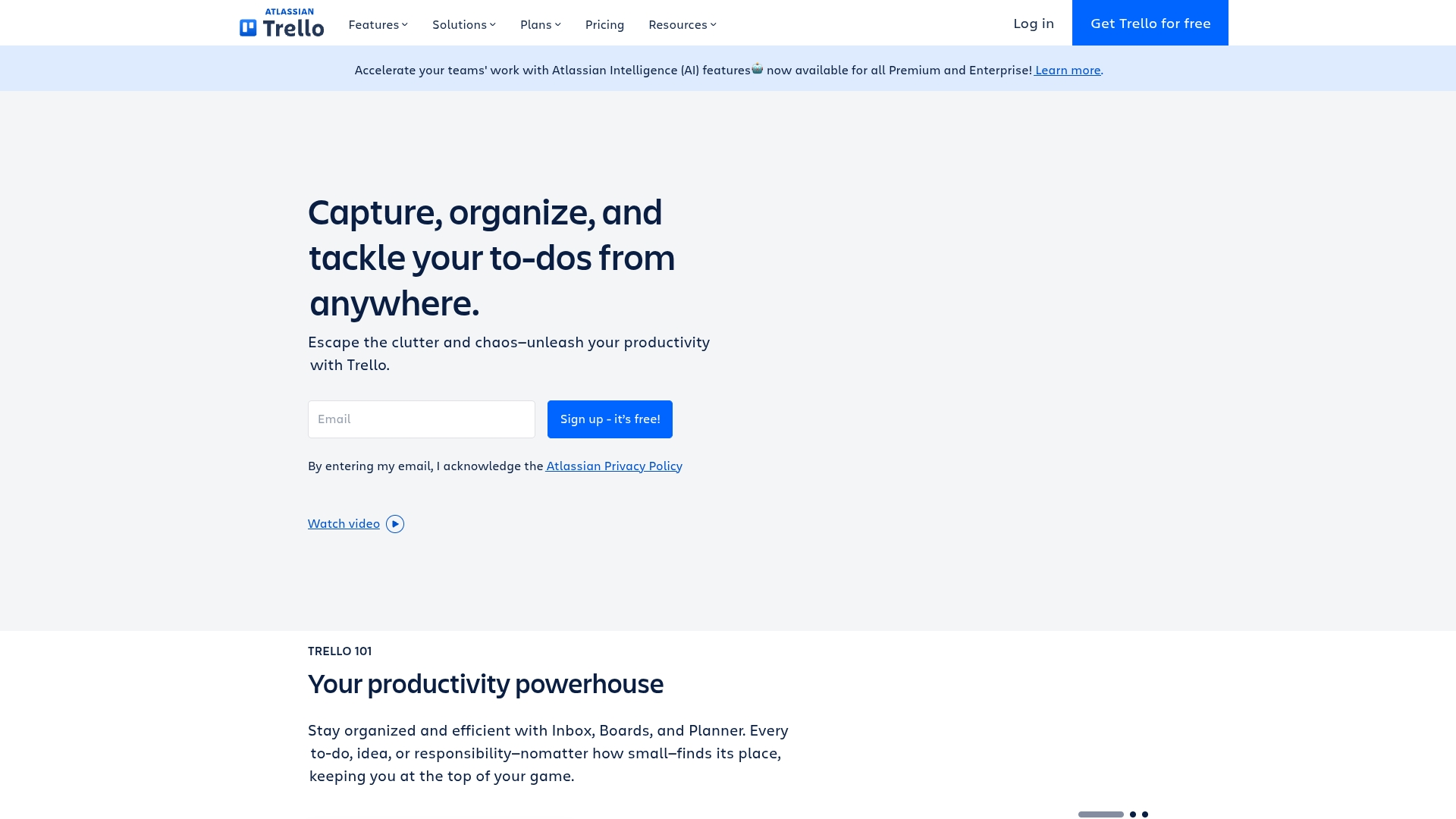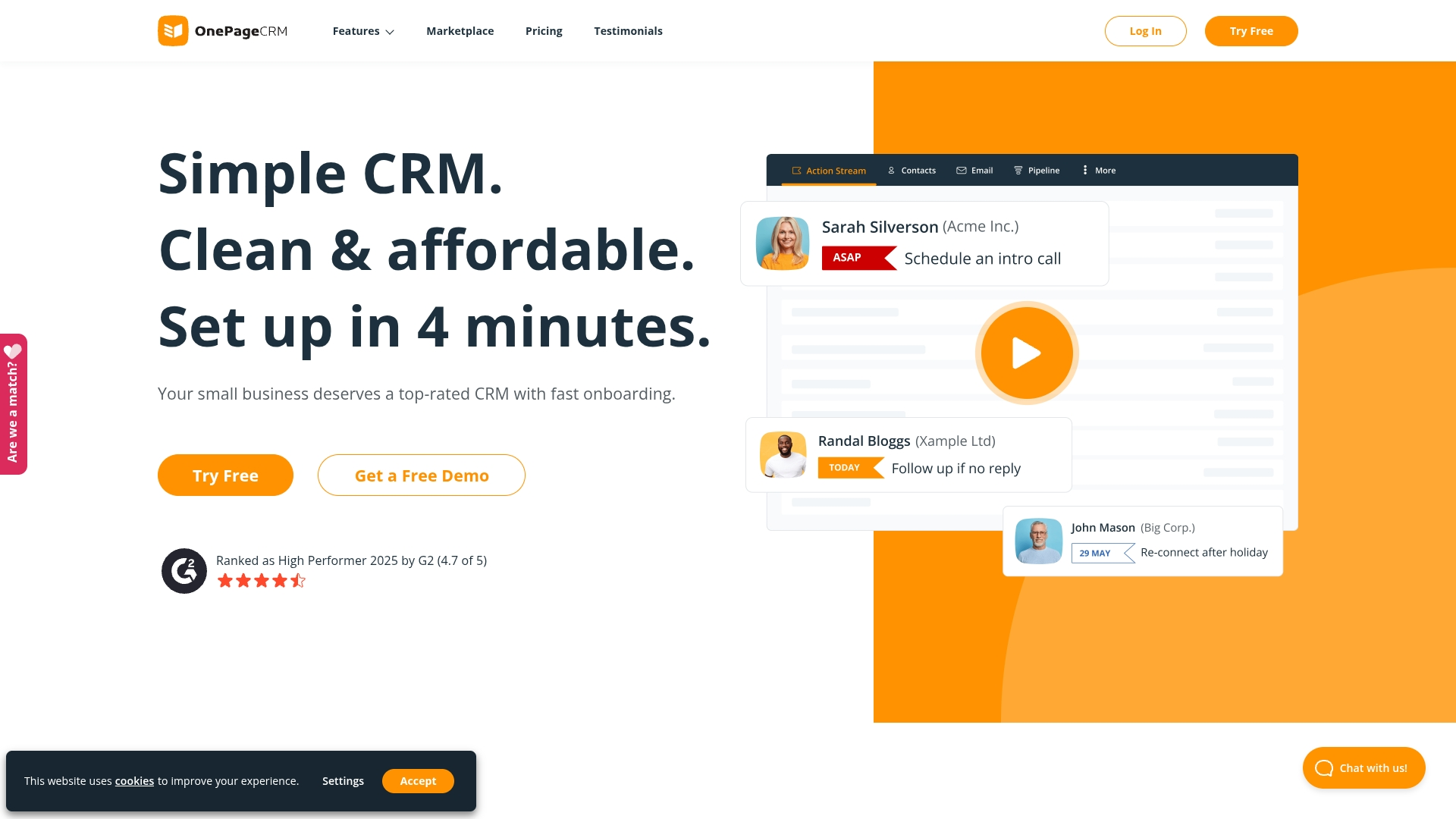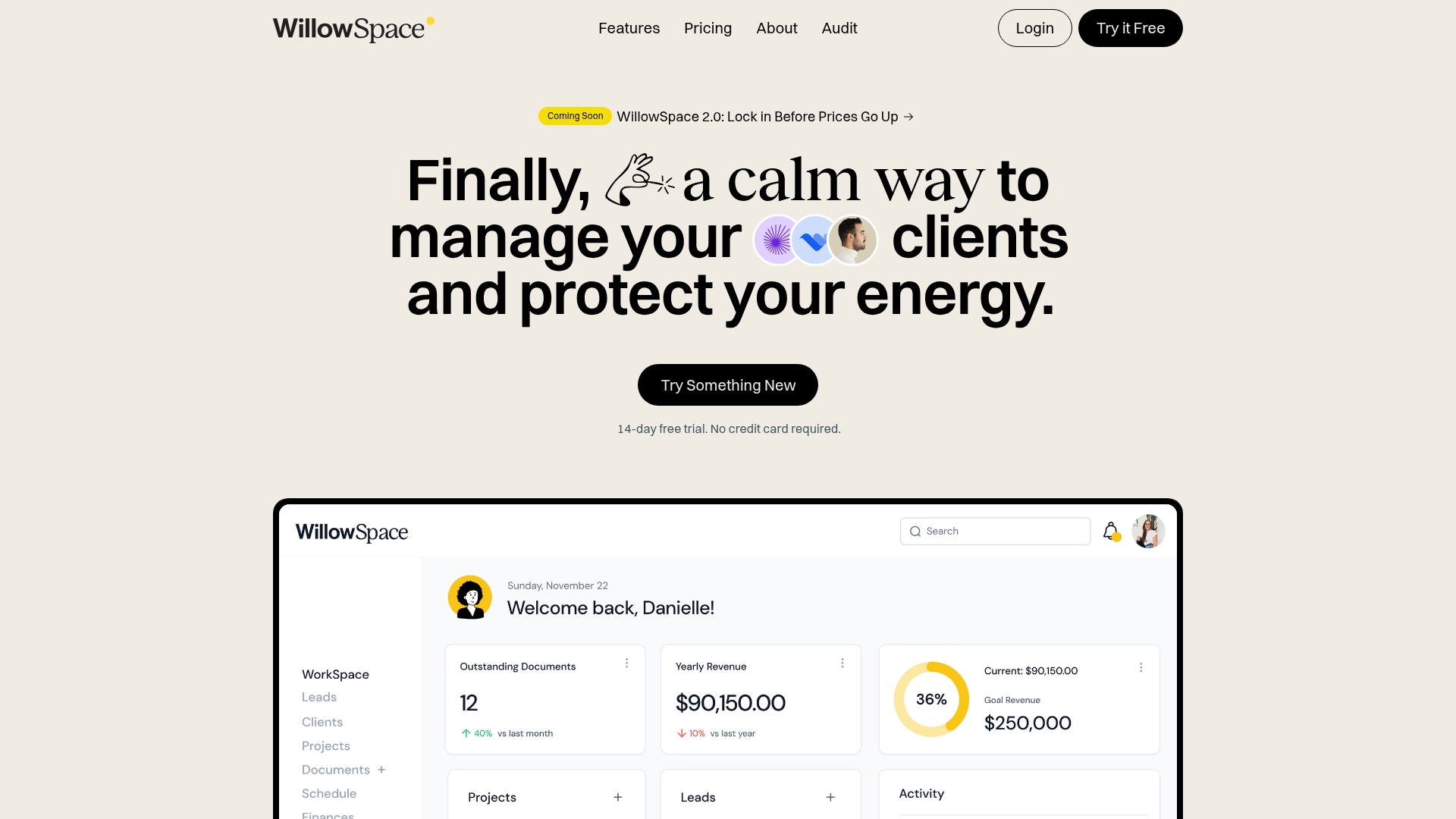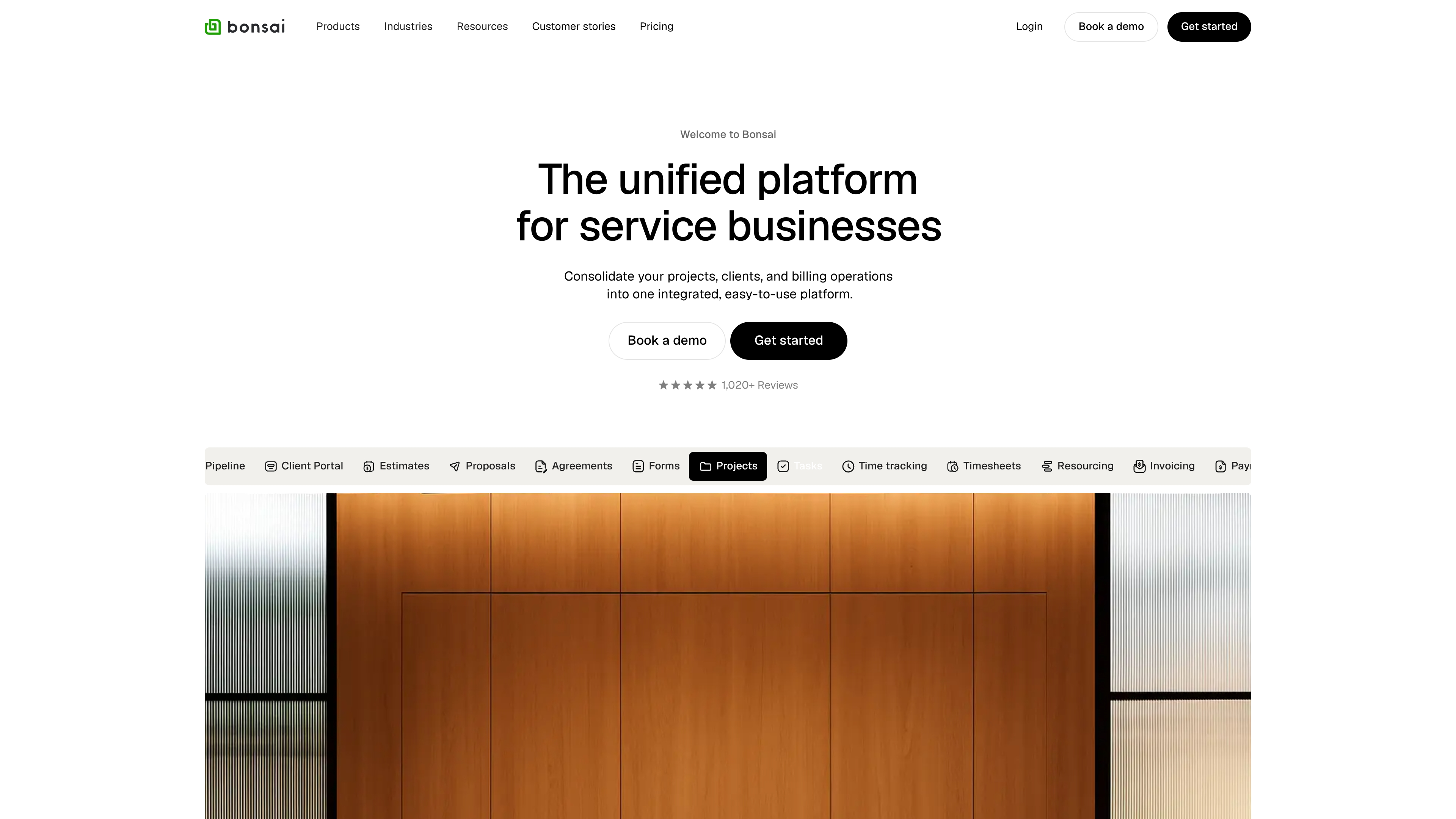Running a design business is as much about organization as it is about creativity. Clients, projects, and new opportunities all need attention, and when those details live in different apps or scattered spreadsheets, it becomes harder to stay on top of the work that matters most. The result is often more time spent chasing updates than creating great design.
That’s where a CRM built with designers in mind makes the difference. By keeping client communication, project timelines, and sales opportunities in one place, it creates a smoother, more reliable workflow. Instead of getting lost in admin, design teams gain the space to focus on their craft while still growing the business.
In this guide, we’ll explore the features that make a CRM truly valuable for creative work, compare the top platforms for 2025, and show how the right system can simplify operations, strengthen client relationships, and free up more time for design.
Key takeaways
- Why a specialized CRM matters: generic platforms rarely fit creative workflows, while design-focused tools keep communication, projects, and sales aligned.
- Features that make the difference: visual pipelines, centralized feedback, and client updates free up more time for creative work.
- How to choose the right fit: factors like ease of use, customization, integrations, and mobile access should guide your decision.
- Benefits of using monday CRM: flexible workflows and automation help design teams manage clients and projects without added complexity.
- Future trends to watch: AI tools and evolving integrations will shape how creative teams collaborate and grow in the years ahead.
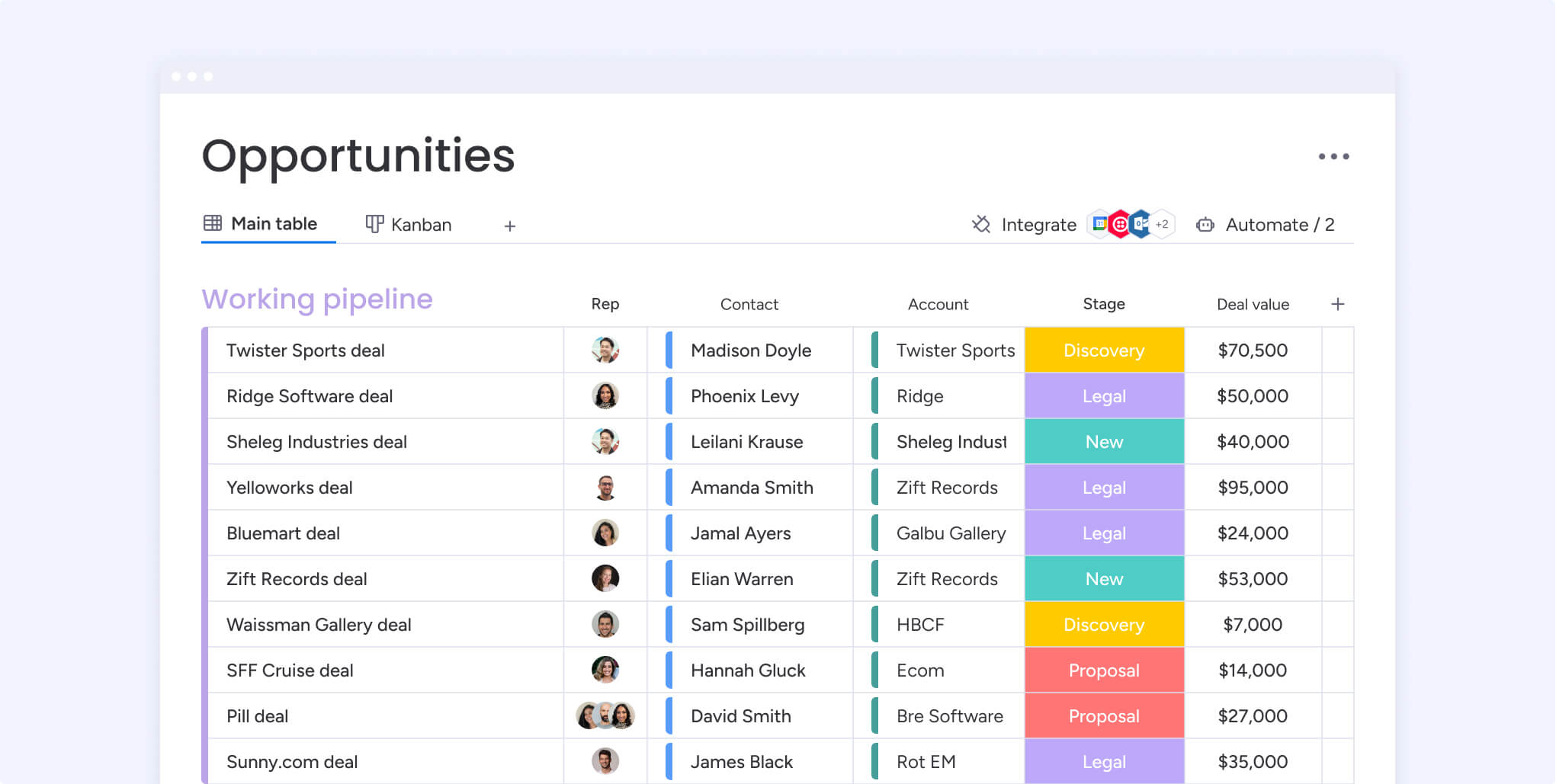
Why designers need a specialized CRM
For design teams, success depends on more than just great creative work. Managing client relationships, projects, and payments in one organized system is essential. Generic platforms often fall short because they don’t reflect the unique needs of designers, from visual projects and feedback cycles to multi-stage deadlines.
The challenges of working without the right system are easy to spot:
- Disorganized client communication: important details spread across emails, chats, and DMs create confusion and lead to fragmented client communication.
- Lost time on admin: hours are wasted chasing updates instead of focusing on design.
- Missed follow-ups and delayed cash flow: disorganization slows revenue and creates frustration for both the team and the client.
A specialized CRM built for creative work changes this dynamic. By automating repetitive tasks and organizing every lead, client, and project into a clear, visual pipeline, it provides the visibility and control needed to move faster and secure more deals.
Essential CRM features for graphic and web designers
A design team’s creative energy is its most valuable resource, so the tools in use should enhance it rather than drain it. For designers, the right CRM isn’t about tracking complex sales metrics. It’s about creating a clear, reliable path from the first idea to the final, paid invoice.
The features that make the biggest difference provide full visibility across the pipeline — from new leads to active projects — while keeping client communication simple and organized. Key capabilities include:
- Visual project boards: give an at-a-glance view of every client and project, making it easy to spot priorities.
- Automated client updates: reduce time spent in the inbox by keeping clients informed without extra effort.
- Centralized file and feedback storage: ensure project details, revisions, and approvals are always in one place.
- Customizable workflows: allow teams to shape the system around their creative process rather than the other way around.
A platform like monday CRM brings these elements together in a workspace that feels as flexible and visual as a design team needs. By automating repetitive admin and providing real-time visibility, it gives designers the confidence to deliver exceptional work and close more deals with ease.

Evaluating CRM options for creatives
The process of selecting a CRM requires the same strategic foresight as hiring a key team member; the right choice streamlines operations, while the wrong one introduces friction. An ideal platform returns your most valuable resource: time to focus on brilliant creative work and winning new clients. It should feel less like software and more like your team’s secret weapon.
A great CRM should bend to fit your unique creative process, not the other way around. Analyze how your team works best and seek a platform that mirrors that flow, from initial pitch to final delivery. This approach ensures everyone can adapt quickly, keeping the focus on billable work instead of lengthy training sessions.
The best platforms are more than just a database; they’re a digital workspace that powers your entire client lifecycle. Look for true flexibility in customization, seamless integrations with the tools you already love, and a mobile experience that keeps you connected on the go. Ultimately, the right choice will feel like a natural extension of your team’s workflow, not a roadblock to it.
| Feature category | Why it matters for creatives | Questions to ask vendors |
|---|---|---|
| Ease of use | Lets your team get back to creating, faster | What does day one look like for my team? |
| Customization options | Builds a workflow that perfectly matches your process | Show me how I can build our exact process in your platform |
| Pricing structure | Scales with your success, not against it | Are there any hidden fees as my team or client list grows? |
| Integration ecosystem | Connects the tools you already use every day | How deep are the integrations with our key design tools? |
| Mobile accessibility | Keeps your projects and client info in your pocket | Can I manage my entire pipeline from the mobile app? |
| Support and training | Provides a support system so you're never stuck | What does your onboarding and ongoing support process include? |
10 best CRM platforms for designers and creative professionals
A CRM should support the way creative professionals work. The right platform keeps client relationships organized, projects moving, and your pipeline clear, all without adding unnecessary complexity. For designers, that means choosing a system that can handle both long-term collaborations and project-based work while staying flexible and easy to use.
A strong CRM brings communication, timelines, and opportunities into one place so nothing gets lost along the way. It helps you stay focused on the creative process while maintaining control of the business side.
Here are 10 CRM platforms that stand out for designers and creative professionals in 2025, each offering a different mix of features, automations, and integrations to fit a wide range of workflows.
1. monday CRM
Designed with creative teams in mind, monday CRM offers a visual and customizable approach to client relationship management. It blends powerful CRM functionality with features that suit design-focused work, making it a strong fit for agencies and freelancers who need to manage client relationships and creative projects in one place.
Example: monday CRM helps design teams centralize client communications, track project progress, and automate repetitive sales tasks while maintaining the visual workflow that creative professionals prefer.
Key features:
- Kanban-style visual pipelines that mirror design workflows.
- AI-powered lead categorization and client brief analysis.
- Integrations with Adobe Creative Suite and Figma.
Pricing:
- Free: $0 (up to 2 seats, 3 boards, basic features).
- Basic: $9/month per seat (billed annually, unlimited items, 5GB storage).
- Standard: $12/month per seat (billed annually, timeline views, 250 automations).
- Pro: $19/month per seat (billed annually, advanced features, 25K automations).
- Enterprise: Custom pricing (enterprise-scale features, 250K automations).
Why it stands out:
- Visual interface that feels natural for design-minded professionals.
- Seamless integration between CRM and project management in one platform.
- Highly customizable workflows that adapt to any creative process.
Advanced AI features
AI capabilities in monday CRM help design teams save time on routine tasks and focus more on creative work. Incoming leads can be sorted automatically by project type and budget, while client briefs are scanned to pull out key details and populate project records right away. The platform also supports AI-assisted email composition, suggesting polished templates that align with your brand voice. It is worth noting however that the availability of these features may depend on your plan and trial credits.
Automations
The platform’s no-code automation builder also lets design teams create custom workflows without technical expertise. You can set up automatic lead assignment based on project type or designer availability, trigger follow-up reminders for client approvals, and send status updates when project milestones are completed. These automations scale with your team, handling everything from simple item assignments to complex multi-stage approval processes.
Integrations
monday CRM connects seamlessly with the creative tools designers already use daily. Integrations with Adobe Creative Suite and Figma mean project files and client feedback can sync directly into your CRM. The platform also connects with popular business tools like Gmail, Slack, and Google Drive, creating a unified workspace where client relationships and creative work live side by side.
CRM for designers features
Built with creative workflows in mind, monday CRM offers tools that directly address challenges design teams face. Visual project timelines make it easy to communicate deliverable schedules to clients, while revision tracking and approval cycle management ensure no detail is overlooked during the process.
2. Pipedrive
Built by salespeople for salespeople, Pipedrive excels at making sales pipeline management intuitive. Its visual, drag-and-drop interface demystifies the process of tracking prospects, making it an excellent choice for design studios and freelancers who want powerful CRM functionality without enterprise-level complexity.
Use case: Pipedrive excels at helping design professionals visualize their entire sales process, from initial client inquiry to project completion, ensuring no opportunity falls through the cracks.
Key features:
- Visual kanban-style pipeline that lets you drag deals through customizable sales stages.
- Activity-based selling methodology that prompts you for next actions on each prospect.
- Over 500 integrations including design tools and project management platforms.
Pricing:
- Lite: $14/month (billed annually).
- Growth: $39/month (billed annually).
- Premium: $49/month (billed annually).
- Ultimate: $79/month (billed annually).
- Add-ons: LeadBooster ($32.50/month) and Projects ($6.67/month).
- Free trial: 14-day free trial with no credit card required.
Considerations:
- Essential features like advanced lead generation and email marketing require paid add-ons, which can significantly increase costs.
- Limited marketing automation capabilities compared to all-in-one platforms, potentially requiring additional tools for comprehensive client nurturing.
3. HoneyBook
For creative entrepreneurs and freelancers, HoneyBook provides an all-in-one client flow management platform. Its specialty lies in seamlessly combining proposals, contracts, and payments into a single workflow, streamlining the entire client journey from initial inquiry to final payment.
Use case: HoneyBook streamlines the entire client lifecycle for creative professionals by centralizing project management, contracts, invoicing, and payments in one customizable platform.
Key features:
- Smart Files that combine proposals, contracts, and invoices into a single interactive document for faster client booking.
- Workflow automation that triggers follow-up emails, questionnaires, and payment reminders based on project status.
- Client portal providing a branded workspace where clients can review documents, communicate, and make payments.
Pricing:
- Starter: $29/month (billed yearly).
- Essentials: $49/month (billed yearly).
- Premium: $109/month (billed yearly).
- Free trial: 7-day free trial available with no credit card required.
- Payment processing fees: 2.9% + 25¢ per transaction for credit cards.
Considerations:
- Reporting and analytics capabilities are considered basic compared to traditional CRMs, lacking depth and customization options.
- Limited third-party integrations compared to larger CRM platforms, which may restrict workflow flexibility for some design teams.
4. HubSpot
Centered on the inbound methodology, HubSpot’s all-in-one platform attracts customers through valuable content rather than disruptive ads. This approach is perfect for design studios aiming to build authentic client relationships. With a generous free tier and seamless integration across its marketing and sales tools, HubSpot removes the complexity of managing multiple systems.
Use case: HubSpot empowers design teams to nurture client relationships through content-driven marketing while managing their entire sales pipeline in one unified platform.
Key features:
- Free CRM with contact management, deal tracking, and email templates that grows with your business.
- Built-in marketing tools including landing page builder, email marketing, and lead generation forms.
- AI-powered Breeze Assistant for content creation, sales prep, and automated customer communication.
Pricing:
- Free: $0 (up to 2 users, 1,000 contacts, includes CRM, marketing tools, and AI assistant).
- Starter: $15/month per seat (removes HubSpot branding, adds required fields and permissions).
- Professional: $50/month per seat (includes AI customer agent, duplicate management, and custom reporting).
- Enterprise: $75/month per seat (adds custom objects, team organization, and single sign-on).
Considerations:
- The platform’s extensive feature set can feel overwhelming for smaller design teams who just need basic client management.
- Costs can escalate quickly as you add more contacts and users, making it expensive for growing studios.
5. Salesforce
As the world’s #1 AI-powered CRM, Salesforce unifies sales, service, marketing, and commerce into a single, comprehensive ecosystem. Its enterprise-level customization and scalability make it the go-to choice for large creative agencies managing complex client workflows and multi-team collaboration.
Use case: Salesforce provides a unified Customer 360 platform that breaks down data silos between departments, enabling design agencies to maintain a complete view of client relationships from initial pitch through project delivery and ongoing support.
Key features:
- Sales Cloud for managing client leads, project opportunities, and revenue forecasting with built-in AI insights.
- Service Cloud for streamlined client support and project issue resolution with automated workflows.
- Marketing Cloud for campaign management and client communication automation across multiple touchpoints.
Pricing: Pricing is tailored by product, role, and industry. For the most up-to-date details, we recommend visiting the Salesforce website.
- Free trial: 30-day free trial is available with no credit card required.
Considerations:
- Requires significant technical setup and ongoing management, making it overwhelming for smaller design studios.
- High cost can be prohibitive for solo designers or small creative teams just starting to implement CRM systems.
6. Zoho CRM
By offering comprehensive customer relationship management at an affordable price, Zoho CRM makes enterprise-grade features accessible to growing design businesses. The platform’s strength is its seamless integration across a suite of 55+ business applications, creating a unified ecosystem particularly valuable for creative teams juggling multiple client projects.
Use case: Zoho CRM provides design agencies and freelancers with an all-in-one platform that combines client management, project tracking, and business operations through its extensive suite of integrated applications.
Key features:
- AI-powered assistant (Zia) offers predictive insights, lead scoring, and email sentiment analysis to help prioritize high-value design clients.
- Blueprint process management creates standardized workflows for design projects, ensuring consistent client experiences from initial consultation to project delivery.
- Comprehensive automation tools streamline repetitive tasks like follow-ups, proposal generation, and project status updates.
Pricing:
- Free: $0/month for up to 3 users.
- Standard: $14/user/month (annual billing).
- Professional: $23/user/month (annual billing).
- Enterprise: $40/user/month (annual billing).
- Ultimate: $52/user/month (annual billing).
Considerations:
- The extensive feature set can create a steep learning curve for new users, particularly those unfamiliar with CRM systems.
- Some users report occasional performance issues and slower loading times when working with large datasets or complex customizations.
7. Trello
Design teams prioritizing simplicity over complexity can transform Trello’s project management boards into visual CRM pipelines. The platform’s intuitive Kanban-style interface, with its drag-and-drop functionality and extensive customization, offers an accessible entry point into customer relationship management for freelancers and small studios.
Use case: Trello provides a flexible, visual platform that design teams can customize into a lightweight CRM system using boards, cards, and automation to track client relationships and project pipelines.
Key features:
- Visual sales pipeline management with customizable boards representing different stages of client relationships.
- Card-based client profiles that store contact information, project details, and communication history in one place.
- Butler automation and Power-Up integrations (like Crmble) that add dedicated CRM functionality to basic project boards.
Pricing:
- Free: $0/month for up to 10 collaborators per workspace with unlimited cards and basic features.
- Standard: $5/month per user (billed annually) with unlimited boards and advanced checklists.
- Premium: $10/month per user (billed annually) including AI features and multiple view options.
- Enterprise: $17.50/month per user (billed annually) with advanced security and organization-wide permissions.
Considerations:
- Limited native CRM functionality requires third-party Power-Ups for advanced features like reporting and contact management.
- Can become cluttered and overwhelming when managing large volumes of clients or complex sales processes.
8. OnePageCRM
With its unique ‘Next Action’ methodology, OnePageCRM turns a traditional contact database into a dynamic to-do list. This action-driven approach keeps designers focused on closing deals by ensuring no client opportunity slips through the cracks, making it perfect for creative professionals who need streamlined client management without enterprise-level complexity.
Use case: OnePageCRM helps designers maintain consistent client follow-ups and organize project communications through its action-focused approach that eliminates administrative overhead.
Key features:
- Action Stream dashboard that prioritizes daily tasks and client follow-ups with color-coded reminders.
- Lead Clipper browser extension to capture potential clients directly from websites and social media platforms.
- Two-way email sync with Gmail and Outlook, plus unlimited custom email templates for client communications.
Pricing:
- Professional: $9.95/month (annual) or $15/month (monthly).
- Business: $19.95/month (annual) or $29/month (monthly).
- Annual plans: these include 4 months free.
- Free trial: 21-day free trial with no credit card required.
Considerations:
- Reporting capabilities are basic and may lack the depth needed for detailed project analytics.
- Limited third-party integrations compared to more comprehensive CRM platforms.
9. WillowSpace
Founded by designer Danielle Joseph, WillowSpace offers a boutique CRM experience for creative professionals who value aesthetics as much as functionality. The platform combines beautiful client portals with streamlined workflows that reflect a carefully built creative brand, making it the perfect solution for designers who refuse to compromise on visual appeal.
Use case: WillowSpace provides an all-in-one client management platform that prioritizes beautiful design and seamless user experience for creative professionals who want their business tools to reflect their aesthetic standards.
Key features:
- Branded client portals with no-login access for seamless project viewing and milestone tracking.
- Customizable workspace with brand colors, fonts, and custom domain options for white-labeled experience.
- Integrated proposal, contract, and invoice management with multi-currency support and automated payment reminders.
Pricing:
- Standard plan: $30/month (monthly billing) with unlimited features for 1 seat.
- Additional team members: $5/person/month.
- Annual discount: Pay yearly and receive 2 months free.
- Free trial: 14-day trial available with no credit card required.
Considerations:
- Limited advanced automation and customization options compared to more robust CRM platforms like Dubsado.
- Smaller integration ecosystem may not connect with all the specialized tools larger creative teams require.
10. Bonsai
Bonsai’s all-in-one business management platform is engineered to streamline the entire client lifecycle, from proposal to payment. Its features, typical of a CRM for freelancers, and seamless document automation make it ideal for independent designers and small creative studios seeking professional client management without the complexity.
Use case: Bonsai consolidates client management, project tracking, and financial operations into a single platform designed specifically for freelancers and small creative teams.
Key features:
- Unified client management with automated document generation for proposals, contracts, and invoices.
- Visual sales pipeline with customizable stages to track leads from initial contact to project completion.
- Branded client portal providing 24/7 access to project updates, documents, and payment information.
Pricing:
- Basic: $9/month (annual) or $15/month (monthly).
- Essentials: $19/month (annual) or $25/month (monthly).
- Premium: $29/month (annual) or $39/month (monthly).
- Elite: $49/month (annual) or $59/month (monthly) with 3-user minimum.
- Free trial: all plans include a 7-day free trial.
- Annual billing: 4 months free compared to monthly billing
Considerations:
- Limited mobile app functionality compared to desktop version, with some key features unavailable on mobile.
- Basic project management capabilities that may not satisfy teams requiring advanced project tracking features.
How to integrate a CRM into your design process
A CRM should enhance your creative workflow, not weigh it down. The goal is to have a system that manages client relationships and projects seamlessly so your team can stay focused on design.
Start by mapping your process from first inquiry to final delivery. This highlights where communication breaks down and where automation can save time.
With monday CRM, those insights translate into a visual pipeline that mirrors how your team already works. Instead of forcing a rigid structure, you get flexibility, automation, and clear visibility across every stage of the client journey.
Key steps to make integration smooth:
- Map your workflow: Outline each stage from lead to project completion.
- Spot automation opportunities: Identify repetitive tasks that can be streamlined.
- Customize your pipeline: Shape your CRM to reflect your existing process.
- Centralize communication: Keep files, feedback, and updates in one place.
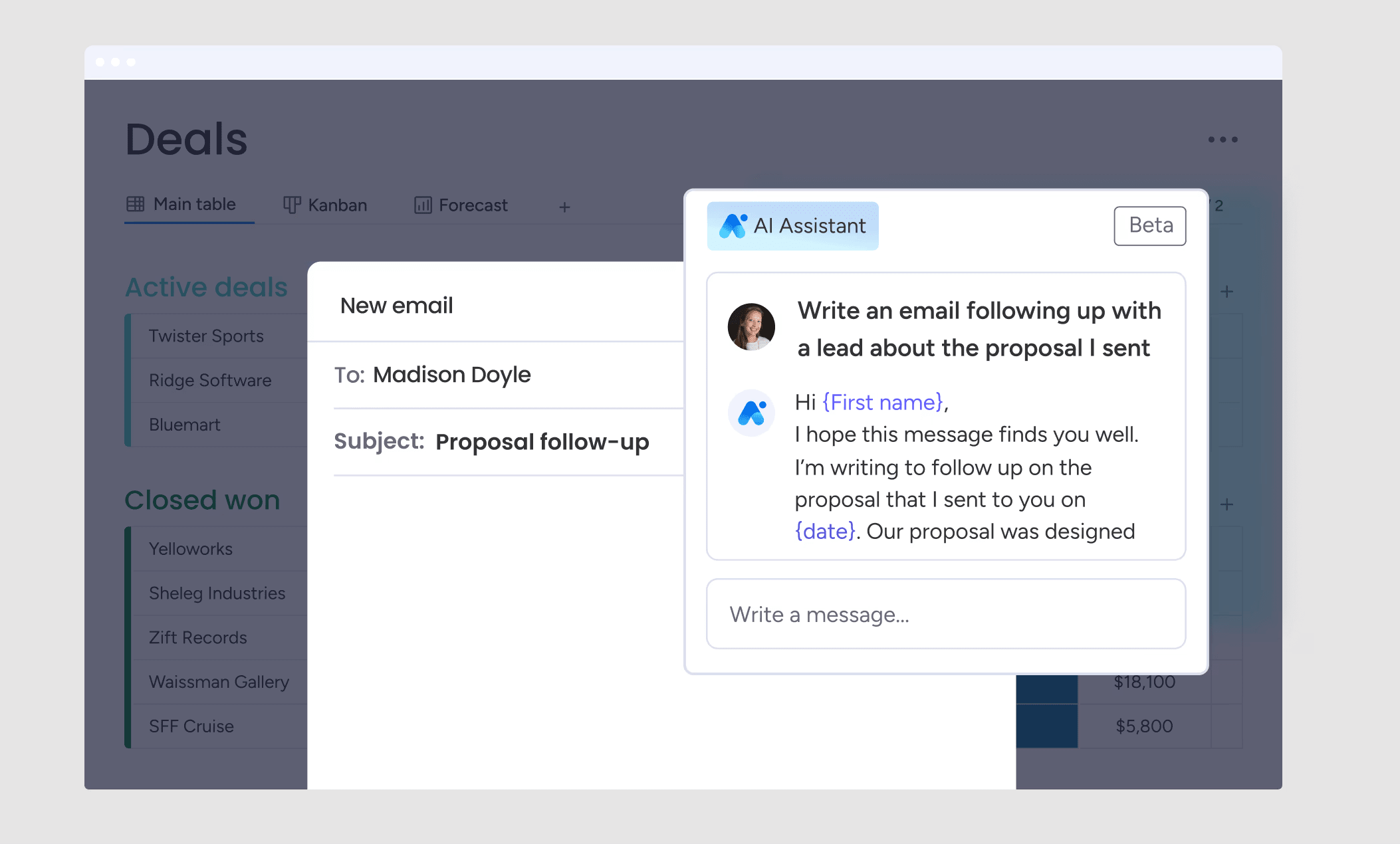
Future trends in creative CRM solutions
Client expectations are evolving, and the strength of your relationships is the key to staying ahead. As demands for speed and personalization intensify, your team needs a CRM that doesn’t just keep up but helps you set the pace. This is the moment to build stronger, more proactive partnerships.
The playbook for tomorrow is taking shape with smarter tools that empower your team. Imagine AI that anticipates client needs before they send an email and seamless integrations that provide a single view from first pitch to final invoice. This shift gives your team the power to work from anywhere with complete confidence.
This is where monday CRM helps you get ahead and stay there. With powerful AI automation and integrations already built-in, you have the visibility and control to adapt to any new play. Think of it as your foundation for growth—flexible enough for whatever comes next, without the technical headaches that slow you down.
Scaling with confidence and creativity
Scaling a design business works best when creativity stays at the centre and admin doesn’t get in the way. Having a single source of truth for projects, clients, and communication keeps everything moving smoothly so your team can focus on what they do best.
Key ways to make that happen:
- Put creativity first by choosing tools that support your process rather than disrupt it.
- Anticipate client needs with a CRM that helps you spot opportunities early.
- Streamline collaboration by keeping timelines, approvals, and feedback in one place.
- Stay flexible with monday CRM, built to adapt to the way creative teams already work.
When these pieces come together, your CRM stops feeling like an obligation and becomes the structure that allows your business to grow confidently.
Get started with monday CRM and give your team the clarity and flexibility to scale.
The content in this article is provided for informational purposes only and, to the best of monday.com’s knowledge, the information provided in this article is accurate and up-to-date at the time of publication. That said, monday.com encourages readers to verify all information directly.
Frequently asked questions
What is CRM in design?
In the context of design, a CRM acts as a central command centre, organizing everything from client communication to project workflows in one visual space. It's the key to managing relationships and projects without chaos, freeing you to focus on creative work.
What are the four types of CRM systems?
CRM systems are often grouped into four categories: operational, analytical, collaborative, and strategic. While each has a different focus, the most effective solutions blend these functions to support daily tasks, improve client communication, and provide meaningful insights.
What is the best CRM platform for graphic designers?
The best CRM for graphic designers is one that adapts to creative workflows with visual pipelines, flexible customization, and integrations with design tools. monday CRM is built to support both freelancers and studios, making it easier to manage client work, track projects, and close deals without disrupting the design process.
Do most graphic designers work as freelancers?
A significant number do, but whether you're a freelancer or part of an agency, the goal is the same: a streamlined process that scales as you grow. A powerful CRM provides the control and confidence to manage your entire client pipeline, from first contact to final invoice.
Can a CRM automate proposals and contracts for creative teams?
Absolutely and this is a major time-saver. A modern CRM can automate proposals with pre-built templates and manage contracts with e-signatures, turning hours of administrative work into a few simple clicks so you can get approvals faster.
How do CRM platforms integrate with design applications?
Many CRMs offer direct integrations with tools like Adobe Creative Cloud or Figma, while others connect through platforms such as Zapier. These links allow project files, feedback, and updates to flow directly into your CRM. The result is a smoother process where client communication, design work, and project tracking stay aligned without constant manual updates.


